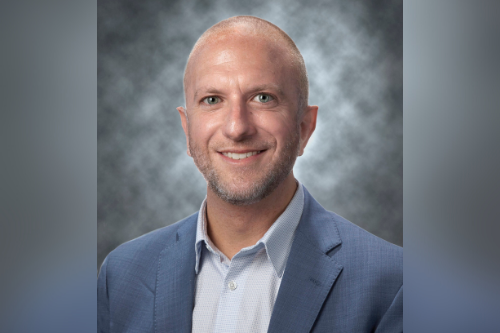

Anyone who thinks insurers are people who like things to stay quiet and predictable has clearly never met Keith Distel.
“It’s really the wild, wild west, and everything’s being created as it goes,” he said. “There’s no actuarial guidance, it’s not like we have historical rates or data that says we have to price in a certain way. Everything is happening really on the fly.”
The casualty team leader at Admiral Insurance Group also functions as a marijuana liability subject matter expert within the company, working with a team spread out across the country that’s trying to help Admiral keep on top of one of the fastest-evolving sectors of the market.
“It’s not every day you get to insure a federally illegal Schedule 1 narcotic,” he said. “It’s a little dangerous, a little sexy, a little fun. It’s not every day you get to be in the throes of an industry that’s really early and can change on a dime. That’s what attracted to me it.”
While Distel and his team had been putting product into development as early as 2017, he counts the November 03, 2020, elections as a major milestone for the cannabis insurers.
While the election of Joe Biden may have gotten the headlines that night, five states – Arizona, Montana, Mississippi, New Jersey and South Dakota – saw voters say “aye” to ballot questions about legalizing medicinal or recreational use of marijuana, leaving only six states without any marijuana legalization or decriminalization on the books. No wonder some industry observers are projecting that legal-channel cannabis sales in the US could triple between 2019 and 2024 to $37 billion.
“As more states legalize, it puts a lot of pressure on neighboring states that traditionally wouldn’t want to support legalization,” Distel said. “I don’t think there’s one state in the US with either medical or recreational cannabis that will speak ill of the tax revenue benefits.”
With things happening so quickly and states with differing levels of marijuana legislation racing to put in place the infrastructure needed to capitalize on those benefits, Distel admits it can be challenging trying to stay on top of what’s happening nationwide in the industry, especially with very little precedent to go by. “You just get thrown into the dumpster fire and figure your way out” is how he jokingly refers to the kind of training it takes to become a marijuana liability SME.
But, he says, there are already signs the early chaos that came with state-by-state legalization is starting to dissipate, opening up many opportunities for insurers and financial institutions to service a rapidly growing industry.
“I know what we’ve witnessed with Canada [legalizing marijuana] and now with Mexico legalizing is you have all that foreign investment, all that money, all that tax revenue that isn’t being funneled into the United States itself,” he said. “One way or another, it’s going to turn the other way, and I think America is going to become federally legal. It’s just a question of when.”
On that note, Distel and others in the cannabis insurance business are watching two federal acts with interest, the SAFE Banking Act and the CLAIM Act. The former is designed to prohibit federal regulators from punishing financial institutions for providing their services to cannabis companies, their owners and their employees, while the latter would give cannabis businesses access to insurance coverage.
“Current federal law prevents these small business owners from getting insurance coverage, and without it they can’t protect their property, employees or customers,” said US senator Bob Menendez (D-NJ), who introduced the Clarifying Law Around Insurance of Marijuana Act. “Our legislation simply levels the playing field for legal cannabis businesses, allowing them to fully operate just as any other legal, small business would by permitting insurance companies to provide coverage to these enterprises without risk of federal prosecution or other unintended consequences.”
Passage of these bills would be a very good thing for the industry. Distel said: “The more protections the federal government gives for insurance companies, naturally we’re going to see more companies coming into the fold” – not just because it would provide clarity and protection for insurers that work with the cannabis industry, but also because it would serve as an acknowledgement of the work that states and insurers have already done to ensure a proper framework is in place.
“I’m encouraged by the transparency and the way this product has been normalized in our society,” Distel said. “I think it’s really turned the corner, from being deemed an essential business to today where it’s something where people don’t have to hide in the shadows. From the insurance side of it, it becomes a lot easier for us as well. We don’t have to hide in the shadows, either; we’re underwriting this product because we’re doing it right.”
